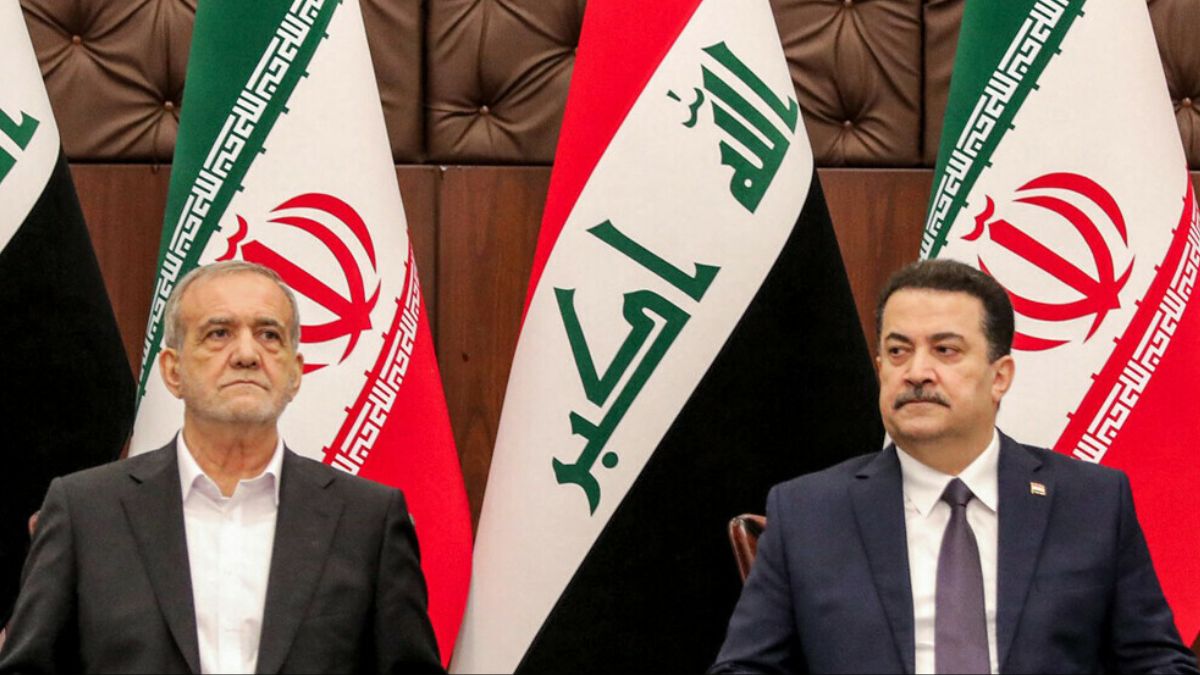Iran’s new president, Masoud Pezeshkian, announced the signing of over a dozen agreements with Iraq on Wednesday (September 11), marking a significant step in strengthening ties between the neighbouring nations.
The agreements were reached during Pezeshkian’s visit to Iraq, his first official trip abroad since taking office in July.
“Fourteen cooperation memorandums were signed between Iran and Iraq, which is the starting point of the expansion of cooperation,” Pezeshkian said during a joint press conference with Iraqi Prime Minister Mohammed Shia al-Sudani. “If we are together, we will avoid falling into the fire,” he added.
Pezeshkian also said he had discussed with his Iraqi host “strategic and long-term plans that will lead to greater cooperation between the two countries”.
Tightening bilateral relations
The agreements show the growing relationship between Iran and Iraq, both Shiite-majority nations, which have drawn closer since the 2003 US-led invasion of Iraq that ousted Saddam Hussein.
In recent years, Iran has emerged as one of Iraq’s top trade partners, with non-oil trade between the two countries reaching nearly $5 billion from March 2024, according to Iranian media.
Iran also exports millions of cubic metres of gas a day to Iraq to fuel its power plants. The gas exports continue under a waiver from US sanctions, which has been regularly renewed.
Impact Shorts
More ShortsRegional diplomacy and sanctions relief
Pezeshkian, who took office after the death of his predecessor Ebrahim Raisi in a helicopter crash, has made strengthening regional relations a cornerstone of his foreign policy.
“Relations with neighbouring countries…can neutralise a significant amount of pressure of the sanctions,” Pezeshkian said last month, referring to the Western sanctions that have hampered Iran’s economy, particularly since the US withdrew from the 2015 nuclear agreement under then-President Donald Trump.
Pezeshkian’s visit to Iraq is expected to further cement Iran’s influence in Baghdad, where its allies play a dominant role in the government and parliament.
With inputs from AFP
)